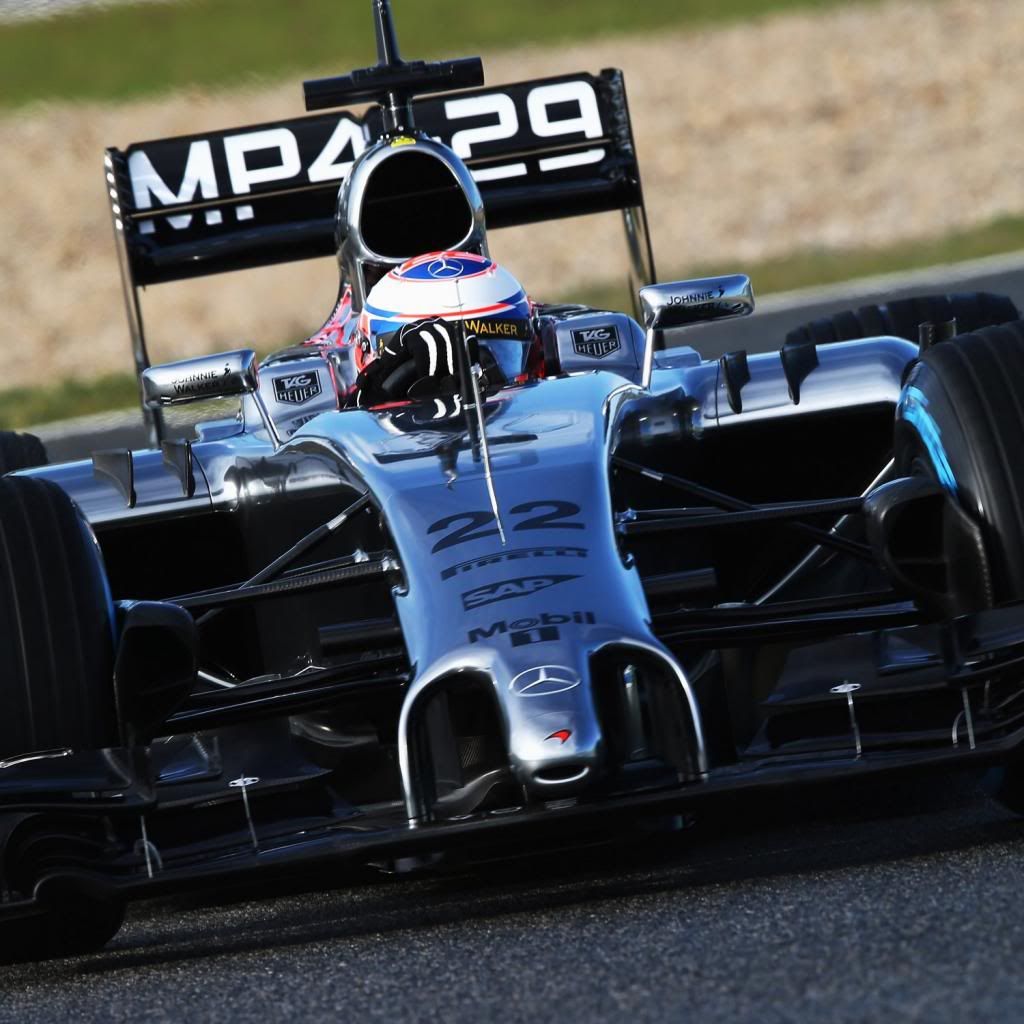JohnsonsEvilTwin wrote:Manufacturers in F1 add cachet to the series. Any series.
How to bring them back?
1) F1 needs proper management. Not the cowboy act that is Bernie.
2) Monstrous budgets should be limited. An idea I have is that for every million you spend over say, 150 million,30% of each million over this will go to the 3 backmarcking teams.
In essence the giants will be funding the paupers if they choose to burn money.
3) Homologate some technology for a limited production run of series cars. If unable to manufacture, the smaller teams could purchase from their chosen suppliers. Im talking HERS or KERS, and also allow annual development. By being able to directly sell what they race, manufacturers have the direct link most crave.
4) Limit fuel usage per race. Each year the figure should drop 5%. Relevant tech can be garnered from this avenue, and in this day and age, fuel economy is probably the most pressing issue for car makers.
5) Banish aero reliance. Make cars more about what we can see(engine, driver, gearbox suspension) rather than the air that passes over it.
My 2 cents.
1. The irony is that Bernie made F1 the international event that it is. He marketed it extremely successfully and the teams know this. The problem is that Bernie's involvement is now all about financing the huge sums that were paid for the commercial rights by CVC. There is no way this will change unless CVC et al want it to.
2. I can see where you're coming from here and can sympathise but it's not going to happen. A possibility is that the top teams should trickle technology to the other teams so that HRT is gifted Ferrari's gearbox from last season, for example. That way they will be brought close to the top teams. A bit like formalising the relationship between RBR and TorroRosso but along the whole pit lane.
3. Not sure I necessarily agree with this. Use F1 as an R&D laboratory, sure, but the idea that you should be able to take it off the race car and stick it in a road car seems a bit, um, daft to me. I do agree that KERS etc should be more fully developed and allowed to be used more freely by the teams. The current limits are purely there to help a certain couple of teams who couldn't/can't get it working previously. I think that KERS etc. could easily be part of a technology transfer scheme as suggested in my point 2. above.
4. Fuel usage is a political and moral issue for F1 in my opinion. If you want to limit it because road cars becoming more fuel efficient then you are paving the way for external political pressures to be applied. Road car manufacturers don't need F1 to develop high efficiency road car engines - they're doing very well already. F1 isn't road car relevant and trying to make it so will kill it. If you entice manufacturers in with the promise of reflected road car glory then, when the economy is down they will likely leave because the costs are too high for any likely reflected glory. We've been here before and it wasn't pretty.
On engine development - be careful what you wish for. Engine development can very easily soak up hundreds of millions of [preferred currency] searching for small gains. That's one of the reasons the engine freeze was implemented.
5. Won't happen because aero is what makes F1 cars so fast around a circuit. Reduce aero and you will slow the cars down. Then F1 would be slower than GP2 etc. which are supposed to be feeder series for F1 itself. As I've mentioned elsewhere, the only way to prevent aero development is to introduce rules that precisely specify every item that might be aero-related on the cars. In effect we'd have a spec chassis series - GP2 by another name.
The irony about aero is that it's probably the most road related aspect of F1 - road cars are minutely detailed these days to cut drag (and lift which creates drag anyway). Look closely at a new road car and you'll see lots of little aerodynamic niceties in amongst the styling all intended to reduce drag (and other things such as wind noise). Sure, they're not making downforce per se (although looking at some sporty cars one can see where they are trying to use downforce to minimise overall lift and so make the car more stable at speed) but they are heavily aero dependent.
If you are more fortunate than others, build a larger table not a taller fence.


